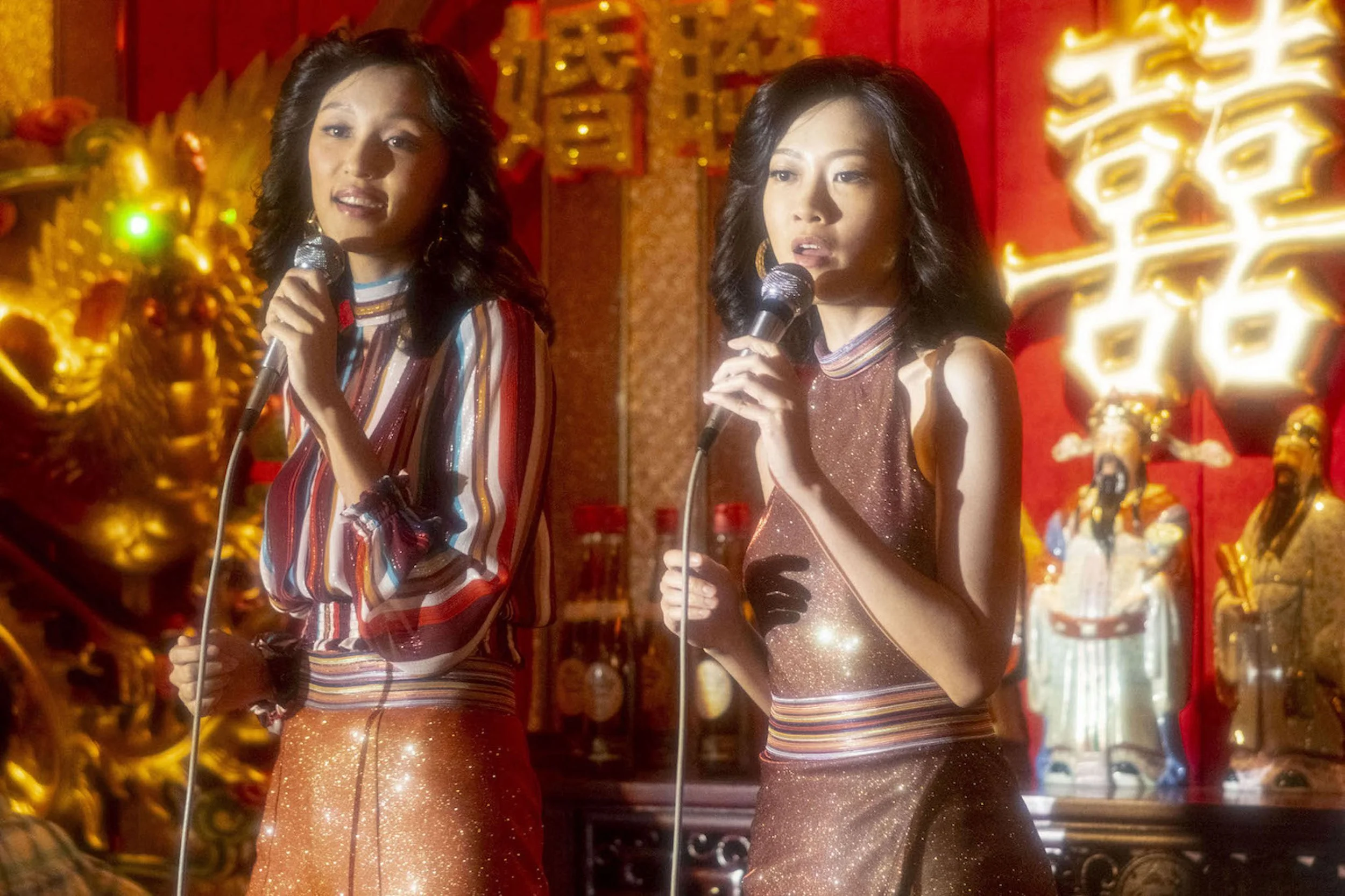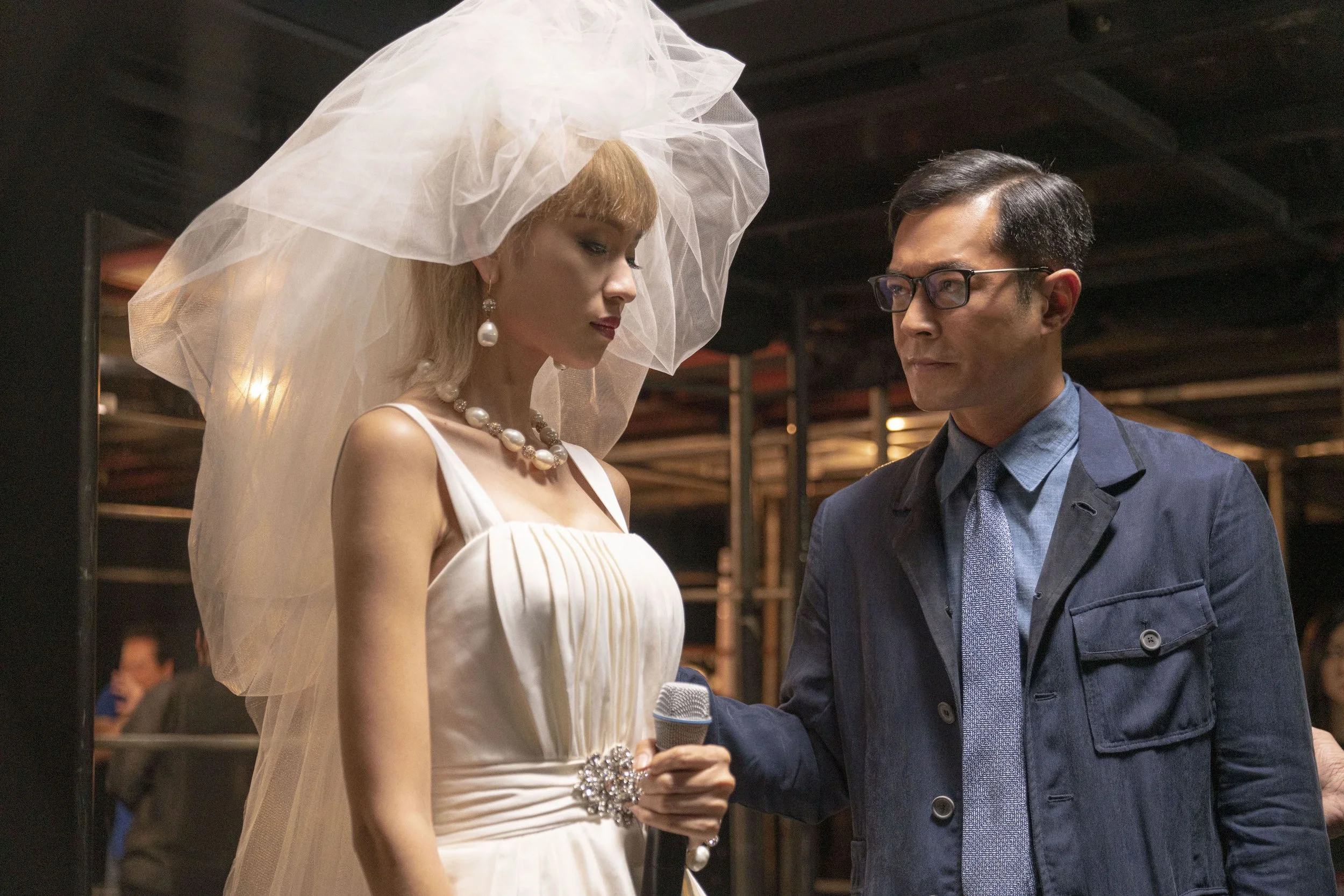Bad Girl Done Good
Director Longman Leung proves Hong Kong can do biopics as formulaic as Hollywood can – which doesn’t mean ‘Anita’ is without its halcyon pleasures.
ANITA
Director: Longman Leung Lok-man • Writers: Longman Leung, Jack Ng Wai-lun
Starring: Louise Wong Dan-new, Louis Koo Tin-lok, Fish Liew, Gordon Lam Ka-tung, Yo Yang, Miriam Yeung Chin-wah
Hong Kong • 2hr 17mins
Opens Hong Kong Nov 12 • IIB
Grade: B
Anita Mui was something, wasn’t she? She was an unlikely pop star, especially in 1980s Hong Kong, where her semi-baritone and giant, odd set eyes definitely fell outside the standards for pop star looks. But she was cool, and she was daring, and when you put that with some crazy-catchy songs it’s not surprising she shot to fame. When she died in the shittiest year on record (maybe the second shittiest now) the music and film industry in Hong Kong lost a major player. She’s still missed. Name a female singer who’s since stepped into her considerable shoes. Go ahead. We’ll wait.
Yeah. Exactly.
So if ever a biopic was deserved it’s one about Anita Mui Yim-fong. In Anita | 梅艷芳, Cold War director Longman Leung hits all the beats expected of a biopic — be it of a musical, scientific, fine arts, political, sartorial or authorial genius. This is fill-in-the-blanks stuff, and with rare exception filmmakers follow the strict set of rules to the damn letter. Only Hallmark Channel Christmas movies are more by-the-numbers than biopics, and if you’ve never experience the latter consider yourself lucky.
So let’s try. A biopic begins with our star as a child, going about their kid-like business but somewhere along the way showing off an uncanny, innate and shocking talent for Profession X (Respect, Ray). Said Star then develops on their own as best they can until they’re discovered by their personal Obi-wan and accept an opportunity to hone their skill (The Man Who Knew Infinity). Things don’t go so well out of the gate. There are some early, disheartening setbacks, but one day, it happens: that moment where lightning strikes and a star is literally born. Stratospheric success quickly follows (Gandhi), but yikes! The pressure to continually succeed changes our Star, who starts to act like a different person, alienates their true friends and falls under the sway of a shady bitch (Bohemian Rhapsody). Doubt in themselves, seeps in, as does some kind of self-abuse, usually boozy or druggy, until they hit Rock Bottom (Rocketman, Walk the Line). Finally, the Star has a long dark night of the soul, screws their head back on right and mounts a triumphant comeback (practically all). Very often, they proceed to die tragically young (All Eyez on Me, Control). Swap out a drug problem for a confrontation with gangsters and Thai exile and you’ve got Anita.
Which is not to suggest that Anita is bad or unaffecting. The distinct sound of sniffles coming from every corner of the theatre demonstrates Hongkongers’ affection for Mui has not waned, rightly so. However, this vaguely hagiographic portrait skips or glosses over huge chunks of Mui’s life; there’s no sense of her status as an LGBTQ icon or her nutty family warring over her estate, and so on. Mui has no “Beyhive” but God help Leung had he dropped the ball on this. Anita is more likely going to be met with approval than not.
Taking on the herculean task of playing Mui is newcomer Louise Wong, who looks nothing like Mui yet somehow manages to remind us of her enough to carry the film along. As a debut performance Wong is admirable, and if we’re honest, brave. As a performance full stop she’s fine, though her limited range could be a hazard were it not for a supporting cast of pros that buoy her weaker moments: Lau Chun-him (Beyond the Dream) has the equally horrifying task of playing Leslie Cheung, though as a theatre actor he’s got the backbone for it; everyone’s favourite tanning enthusiast Louis Koo plays Mui’s long time consume designer Eddie Lau, and you know what? Koo is always welcome. Rounding out the cast are the hardest working man in Hong Kong, Gordon Lam as manager Leonard So, and Fish Liew (Limbo) in an elegant turn as Mui’s sister Ann. That said, Wong owns the film’s high point, a segment in which Mui has a heart-to-heart with Cheung at his funeral. It’s a loaded scene — Mui knows she’s dying at this point — and unapologetically emotional, and Wong plays it close to the chest. There’s no shaking a fist at an uncaring god, and it’s all the more moving for it.
Now, whether or not Leung’s creative choices will resonate is anyone’s guess. Are you taken out of a film when you see the “real” people as the end credits roll? If so you’re going to have issues with Anita, which sprinkles footage of the real Mui throughout the film. Plenty of fans are bound to enjoy seeing their goddess again, but the inclusion of archival material undermines Wong’s performance, as if to say, “Yeah, sure, Louise is great but check out the real deal!” Wong has a hard enough job as it is in trying to capture the essence of Mui’s singular, envelope-pushing stage persona without having to fight a ghost.
So the question becomes: Will you leave Anita and immediately whip out the phone and cue up a Mui YouTube playlist? Yes. Yes you will. Leung has gone on the record admitting some viewers have referred to Anita as a two-hour music video. Maybe. But Leung (wisely) keeps the full-blown production numbers to a minimum and lets the music serve as a vehicle to carry us back in time, along with some stellar production design and CGI supervised by Yee Kwok-Leung that Marvel would be wise to take notes on. It’s not Coal Miner’s Daughter, the form’s high water mark to date, but it’s no Grace of Monaco either.




